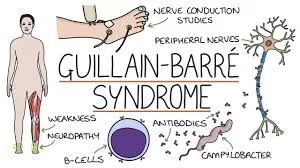Cancer is a complex disease with numerous causes—sometimes even no clear cause at all. For many patients, developing cancer is a matter of bad luck, even when they maintain a healthy lifestyle. However, research has shown that there are several steps individuals can take to reduce their cancer risk. Here are five evidence-based strategies that can help lower your chances of developing cancer, according to an oncology consultant.
1. Quit Smoking and Avoid Tobacco
Tobacco use remains the single largest preventable cause of cancer. Smoking is directly linked to lung cancer but can also contribute to the development of oral, throat, kidney, bladder, pancreatic, stomach, and cervical cancers, among others. The harmful chemicals in cigarette smoke impact the entire body, not just the lungs. Quitting smoking is the most important step to reduce cancer risk, with about 30% of all cancer deaths in the US and Europe attributed to cigarette smoking. The benefits of quitting begin immediately, and it’s never too late to stop.
If you’re struggling to quit, consider joining a tobacco treatment program or speaking to your doctor about helpful products. But sometimes, the best strategy is simply to stop. Even if you don’t smoke, it’s vital to avoid second-hand smoke, which is also a significant cancer risk factor.
2. Maintain a Healthy Weight and Stay Physically Active
Maintaining a healthy weight is crucial for cancer prevention. Excess body fat triggers the release of hormones that can promote cancer growth. Obesity has been linked to higher risks of breast, colorectal, endometrial, esophageal, kidney, and pancreatic cancers.
Regular physical activity, which aids in weight management, also independently reduces cancer risk. The American Cancer Society recommends at least 150 minutes of moderate exercise or 75 minutes of vigorous activity each week. Even if you don’t lose weight, exercise still helps protect against cancer. Incorporating movement into your day, such as taking short walking breaks or using standing desks, can also make a difference.
3. Adopt a Healthy Diet
While diet alone can’t guarantee cancer prevention, certain eating habits can significantly lower the risk. A cancer-fighting diet should focus on plant-based foods, such as fruits, vegetables, whole grains, and beans. Research suggests that a Mediterranean-style diet—rich in vegetables, whole grains, and healthy fats—has been associated with a reduced risk of certain cancers.
It’s also important to limit processed foods, sugar, and saturated fats, all of which can contribute to weight gain and potentially increase cancer risk. Even public figures, like King Charles, have been reported to cut out red meat to help protect against cancer, reinforcing the idea that dietary choices play a key role in overall health.
4. Limit Alcohol Consumption
Alcohol consumption is associated with an increased risk of several types of cancer, including oral, throat, breast, liver, and colorectal cancers. The more alcohol consumed over time, the greater the risk, with a clear dose-response relationship.
While cutting alcohol out entirely can be difficult, especially during the holiday season, moderation is key. Research shows there is no “safe” level of alcohol consumption when it comes to cancer prevention. If you don’t drink, don’t start, and if you do, aim to drink less. Enjoy life, but focus on moderation to help reduce your cancer risk.
5. Protect Against Sun Exposure and Get Vaccinated
Skin cancer, including melanoma—the deadliest form—remains one of the most common yet preventable cancers. The sun’s UV rays can damage skin cell DNA, leading to cancerous growths. To reduce your risk, use sunscreen with an SPF of 30 or higher, seek shade, and wear protective clothing such as wide-brimmed hats and sunglasses, particularly between 10 a.m. and 4 p.m., when UV rays are the strongest.
In addition to sun protection, vaccination against certain viruses can prevent some cancers. The HPV vaccine, for instance, is recommended for all teenage girls and has been shown to dramatically reduce the risk of cervical and other genital cancers. The UK’s NHS aims to eradicate cervical cancer by 2040, thanks in large part to the success of this vaccine.
Conclusion
While cancer risk can never be fully eliminated, these five strategies can significantly reduce the chances of developing the disease. By quitting smoking, maintaining a healthy weight, staying active, adopting a balanced diet, limiting alcohol consumption, protecting against sun exposure, and getting vaccinated, individuals can control many modifiable risk factors.
Small lifestyle changes, such as incorporating one or two of these strategies into your daily routine, can have a lasting impact. Regular medical check-ups and cancer screenings remain essential for early detection and prevention. By making these positive changes, you not only reduce your cancer risk but also improve your overall health and well-being.
It’s never too late to start, and every step toward a healthier lifestyle counts.












